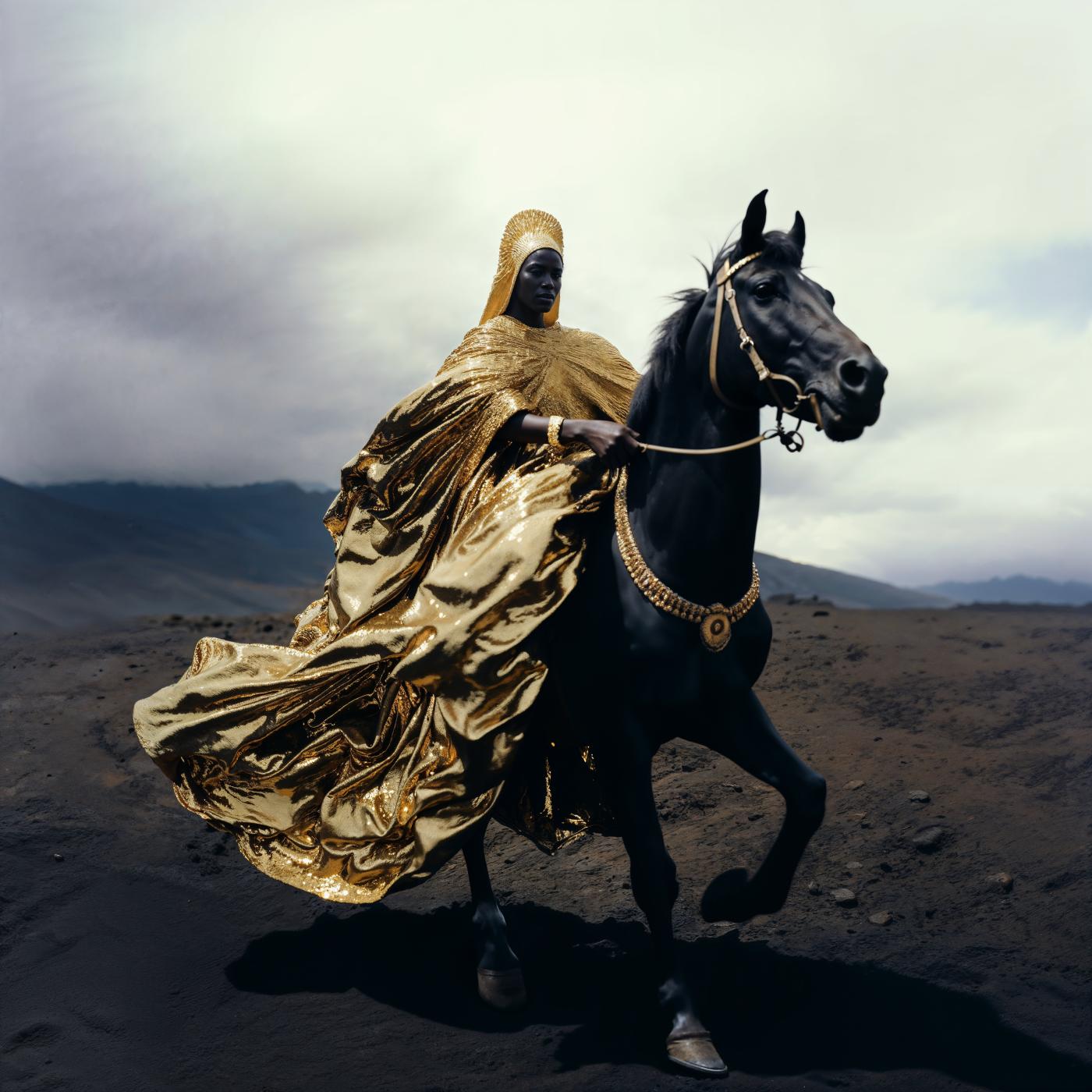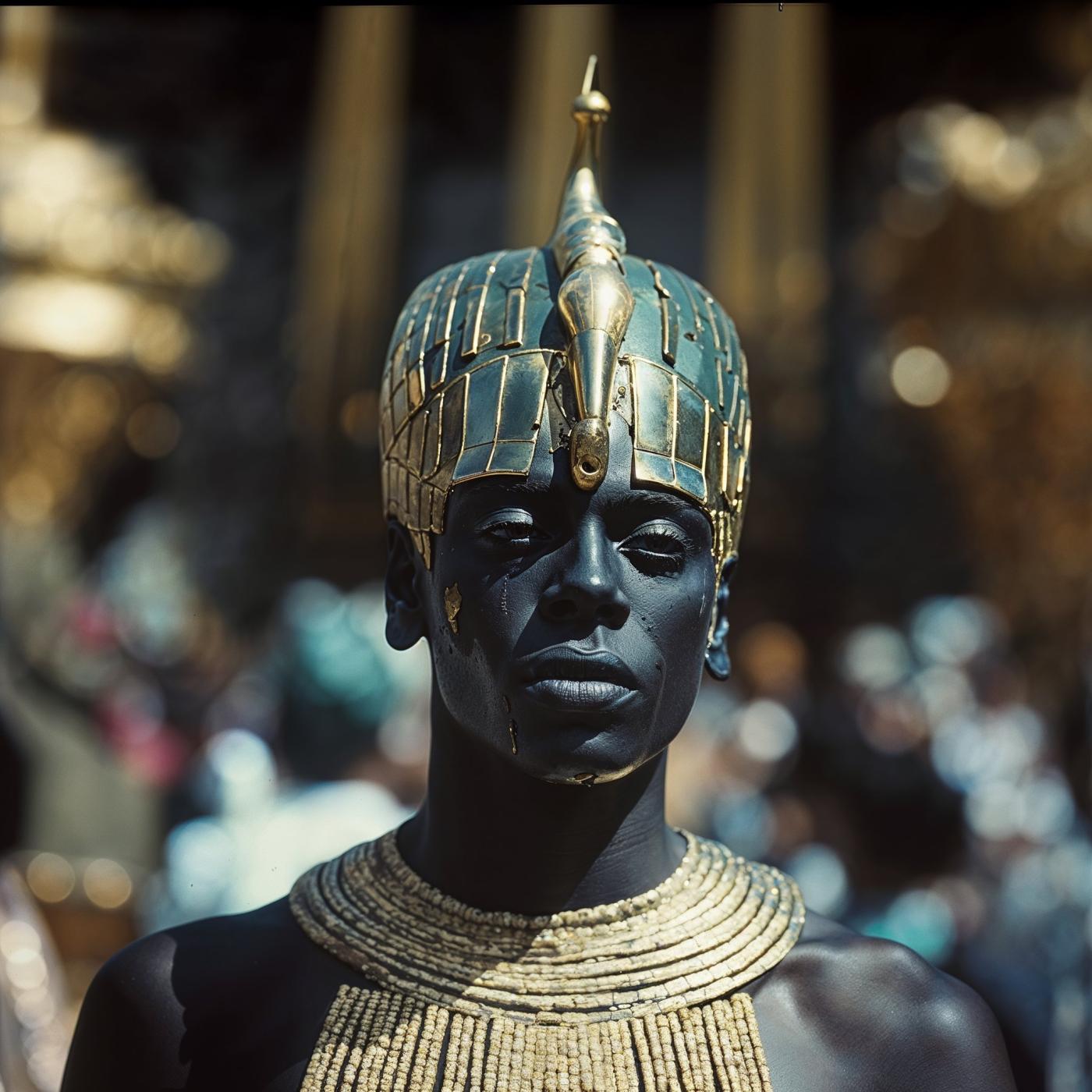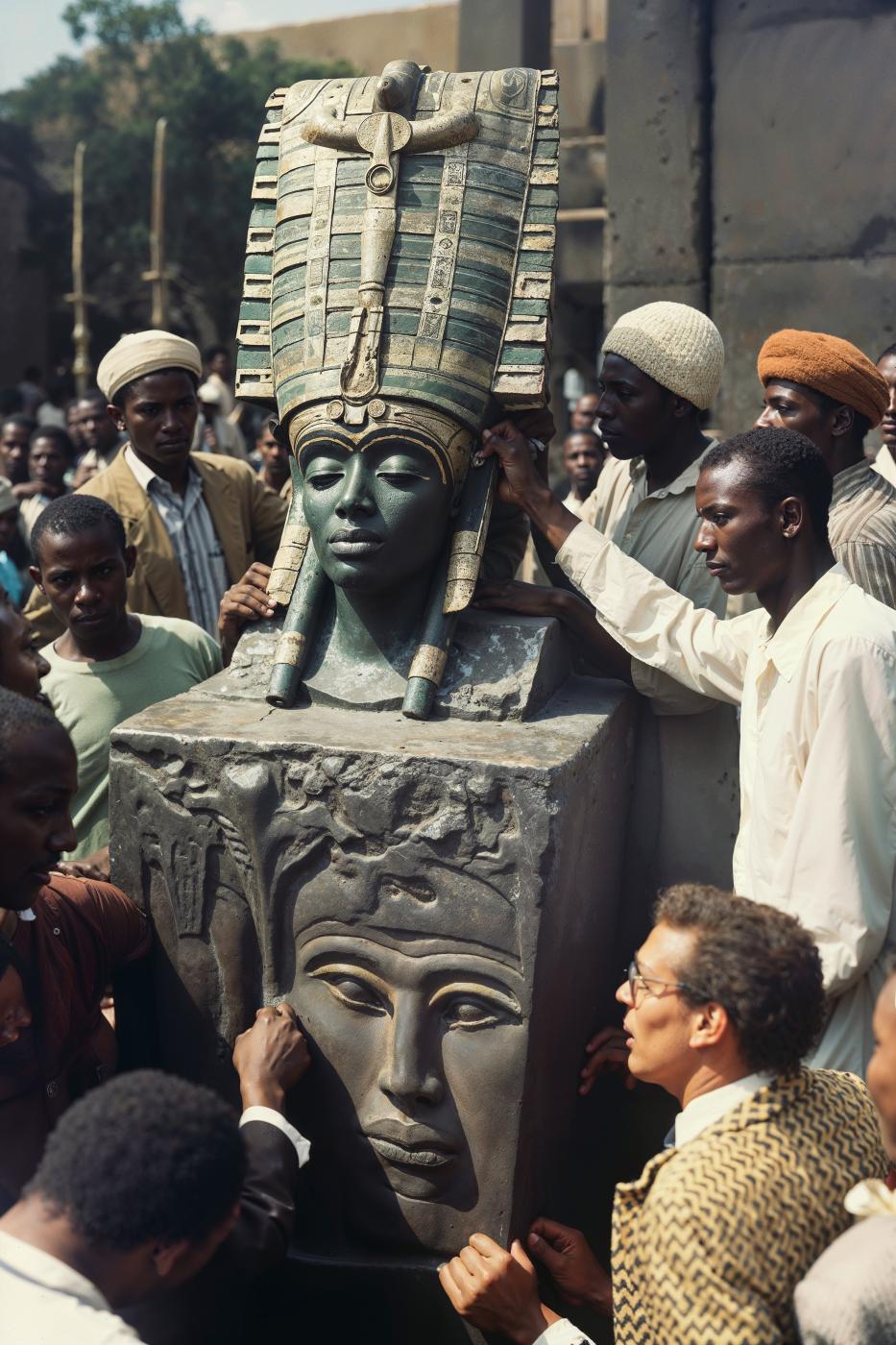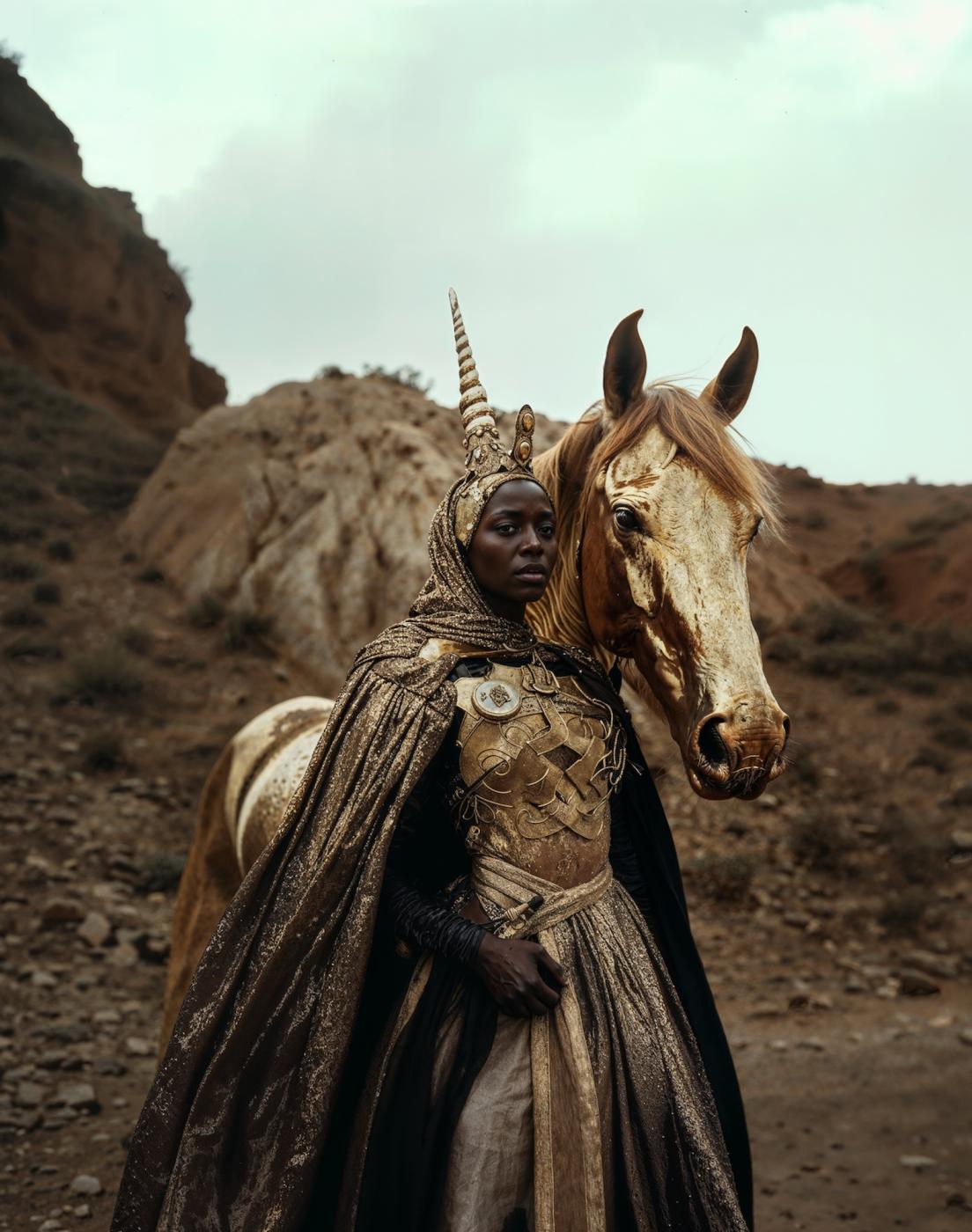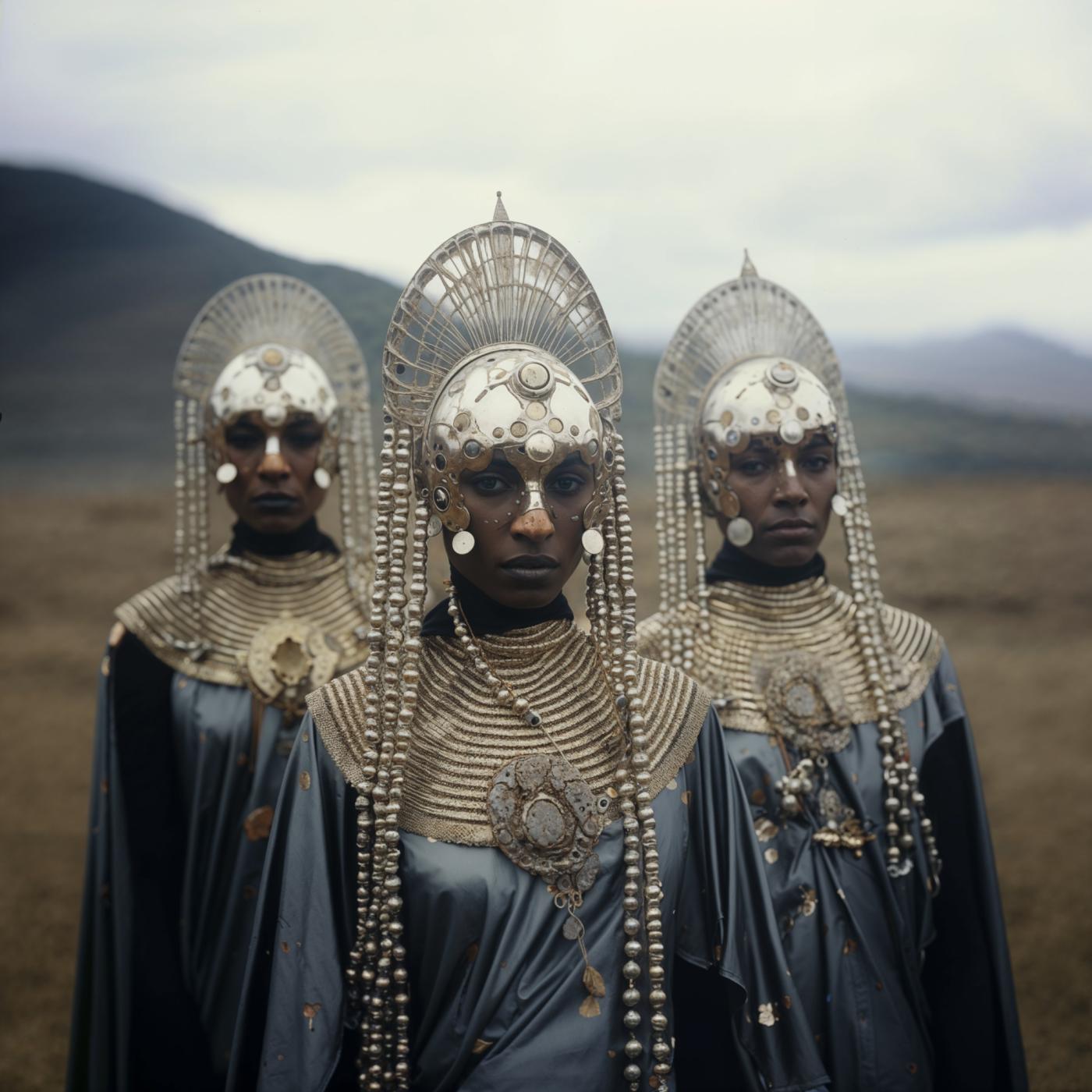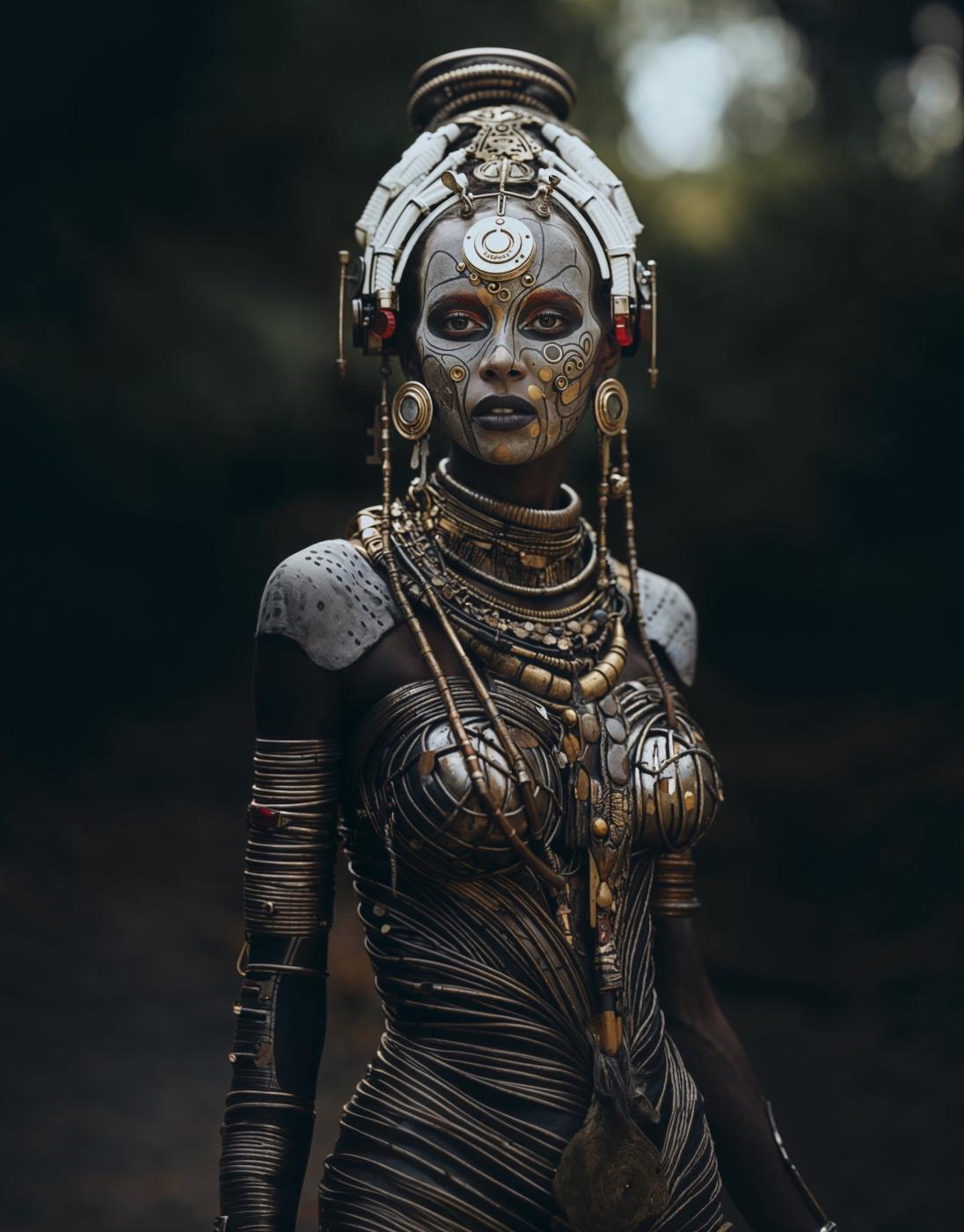Public Project
Kush A.I
Cheikh Anta Diop: "African renaissance culture will break the chains of historical darkness to illuminate a future where everyone can walk in the light of their own dignity and rediscovered humanity."
Diallo merges her passion for analog photography with the rising power of artificial intelligence, which she prefers to consider as a form of "ancestral intelligence." Inspired by the decolonial thought of Frantz Fanon, she presents a series of images generated by this intelligence, evoking vast and profound landscapes from her travels across Senegal, Botswana, Uganda, Ethiopia, and Egypt. Her father’s Senegalese heritage serves as a valuable cultural reference for her, while her French mother adds to the richness of her multicultural identity.
Her work is imbued with a decolonial vision and is anchored in the lesser-known legacy of the African civilization of Kush, which spanned approximately from 2500 BCE to 300 CE. Despite the significant contributions of the Kingdom of Kush, notably under the reigns of Napata and Meroë, dominant historical narratives have often marginalized this civilization, distancing Africans from their true cultural and historical heritage.
Diallo creates a space where reality and imagination meet, transporting her viewers into a world nourished by her experiences and ancestral roots. Her creative process blends modern technologies and a decolonial aesthetic to transform artificial intelligence, or "ancestral intelligence," into a tool of liberation and cultural re-imagination rather than an extension of dominant colonial structures.
In this context, decolonizing space means embracing difference and rehumanizing each individual, eliminating the objectification of Black bodies. This approach becomes a radical response to dystopian narratives, offering a plurality of perspectives to envision freedom and equality. The machine, far from being a mere tool, becomes a mirror reflecting visions of prosperity and potentiality.
Diallo expresses a universal vision rooted in African mythology, where historical stories intertwine with contemporary technologies to imagine a harmonious future. Echoing the essence of "Space Is the Place," she asks, why can’t we imagine a space right here where we could thrive? She affirms that as long as a vision exists in our minds, we already possess the tools to realize it, nourished by the realities and mysteries of our past.
Through her "Kush Collection," Diallo embodies this ambition to decolonize the technological future, integrating this ancestral intelligence and offering tangible proof of the possible harmonization between human and machine. Often viewed through a dystopian lens, this intelligence becomes, in her hands, a force with which we can transcend traditional boundaries and create as never before. Everything we dared to imagine is now within our reach, and no one has to wait any longer to bring their dreams to life. The tool for our emancipation has already been offered to us.
4,375

